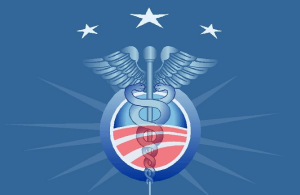Obamacare dealt blow in D.C. court, effect on Illinois questionable

Brady Cremeens
Illinois News Network
7/22/14
The functionality of the Affordable Care Act was dealt another blow Tuesday in the U.S. Court of Appeals for the District of Columbia.
The court ruled that the Internal Revenue Service does not have the ability to circumvent the original intent of the Affordable Care Act and provide insurance subsidies or impose individual and employer penalties in the states that have not created their own health-insurance exchange.
The case, titled Halbig v. Burwell, challenged the IRS’ rule that made insurance subsidies available in all states, even the ones who have failed or chosen not to set up a state exchange. It also challenged the IRS’ stance that penalties could be imposed on those without insurance in states without exchanges.
The appeals court voted 2-1 against the IRS’ interpretation of the law. The Obama administration is expected to appeal the decision, perhaps to the U.S. Supreme Court.
The court’s majority opinion noted that the Affordable Care Act legislation states that subsidies could only be obtained by individuals purchasing a plan “through an Exchange established by the state,” and that the law stipulates this “unambiguously.” Currently, 36 states, Illinois included, have refrained from creating their own federal insurance marketplaces, otherwise known as exchanges.
Today’s ruling would mean individuals and employers would no longer be subject to IRS penalties in Illinois. It would also mean Illinoisans looking to purchase Obamacare insurance wouldn’t be illegible for IRS subsidies.
The court’s decision is seen as a setback for Obamacare proponents, as it prevents the IRS from providing subsidies and imposing penalties on all 50 states.
Yevgeniy Feyman is a fellow at the Center for American Progress at the Manhattan Institute, and says the effect on Illinois residents will be delayed, because the case is almost certainly going to the U.S. Supreme Court.
“For a year or so, nothing will really happen,” Feyman said. “The subsidies will keep flowing until if and when the Supreme Court upholds or overturns today’s ruling.”
Feyman said that if the Supreme Court does agree with the appeals court’s decision, Illinois will likely try to pass legislation to set up a federal exchange. Similar legislation was proposed and rejected in the Illinois General Assembly in the spring session.
“Assuming the Supreme Court upholds the ruling, it could put some pressure on premium prices in state’s without exchanges,” Feyman said. “It’s likely that insurers will predict young people will opt out of the program because the penalty no longer exists, and thus premium prices will rise to pay for the older generation’s health care costs.”
The political pressure of rising premiums will cause lawmakers to think more seriously about creating a state exchange so Illinoisans can receive subsidies, according to Feyman. But it also means those who choose not to purchase insurance through the exchange would be forced to pay a penalty. Feyman predicts that Illinois will vote on whether to set up a state exchange in the next election cycle, but to expect a heated political battle.
Jennifer Koehler is the executive director of Get Covered Illinois, the group working to connect people with insurance coverage through Obamacare.
Koehler echoed Feyman and said that for the time being, things remain pretty much the same for health insurance coverage in Illinois.
“The bottom line for now is that nothing has changed and the subsidies created under the law to help people cover the cost of their health care remain in effect,” Koehler said in a statement.
The health coverage provided through Obamacare “is making a real, positive impact on people’s lives and well-being,” she said.







